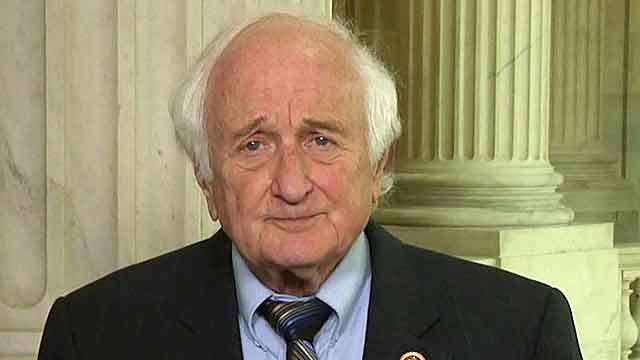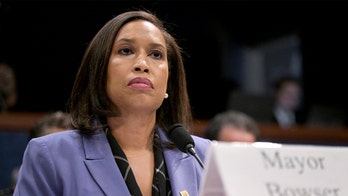Unanswered questions surrounding the deadly Benghazi attack. The IRS targeting conservative groups. The Department of Justice spying on the press. Fund-raising to benefit ObamaCare?
The latest controversies swirling around the Obama administration have critics calling for an independent counsel or a special prosecutor to determine if laws were broken, and, if so, who is accountable.
Rep. Ted Poe, R-Texas, for instance, penned a letter Tuesday to U.S. Attorney General Eric Holder, calling for him to appoint a special prosecutor to investigate the IRS for singling out conservative groups, like the Tea Party, for additional scrutiny -- an action Poe called "criminal."
[pullquote]
But when it comes to getting answers, the only choice absent media scrutiny or congressional oversight appears to be a probe led by an appointee of the Department of Justice, according to legal experts. The Office of Independent Counsel was scrapped in 1999, amid claims from both sides it was corrupt and used for political purposes.
"There is no longer an independent counsel statute, like Kenneth Starr investigating Bill Clinton," said Paul Rothstein, a Georgetown University law professor. "The way it works now is that someone in the Justice Department designates a counsel who has some independence, but it's not completely independent of the Justice Department."
In the case of the secret Associated Press probe, the deputy attorney general will be tasked with appointing a special prosecutor since Holder recused himself from the investigation.
"It's not ideal because it still is the Justice Department, but it has some degree of independence," Rothstein said. "There will not only be this semi-independent person in the DOJ, but Congress will also investigate it and that will be the opposite party, so that’s a little bit of a safeguard. And then you have the press as a watchdog, too."
While there are varying opinions over the Clinton investigation that began as a probe of the Whitewater land development deal and expanded to include other matters including President Clinton's dalliance with intern Monica Lewinsky, Rothstein said it was thought by many that the independent counsel procedure had "some bad flaws."
"It was felt that they didn’t renew the statute because he [Starr] was completely independent and had a completely independent budget with no limitations and no mission other than to investigate one person," Rothstein said. "Part of the argument was that it was too susceptible to possible abuse," he said.
The post of special prosecutor, whether named by the president, the Department of Justice, Congress or a judge, has been controversial dating back at least to the Nixon administration. Harvard Law Prof. Archibald Cox was appointed special prosecutor of the Watergate affair under a deal between the Senate and the White House. When Cox demanded previously unknown tapes of potentially incriminating White House conversations, Nixon ordered his attorney general to fire Cox. But Attorney General Elliot Richardson resigned instead, as did the next-in-line DOJ boss, William Ruckelshaus. That put Solicitor General Robert Bork in charge, and he fired Cox and named Leon Jaworski special prosecutor. The episode called into question whether a special prosecutor ultimately appointed by the Executive Branch was really independent enough to probe the president.
Rothstein, however, said it's possible that a court could appoint a prosecutor who would be not part of the Justice Department.
"It's conceivable that somebody from Congress might petition a court," he said, though he claimed "This would be a very extraordinary procedure."
Rothstein said that if these cases made it into a court, judges would be "most sympathetic" to appointing a special prosecutor to examine the IRS scandal, in which Tea Party and other conservative groups were singled out for additional scrutiny in their applications for tax-exempt status.

























